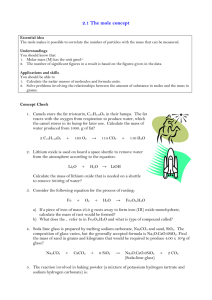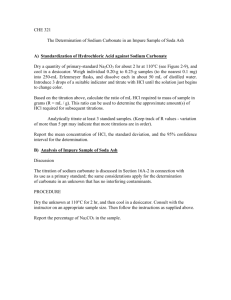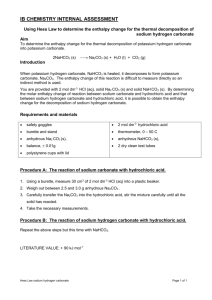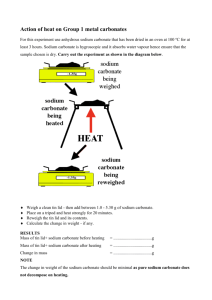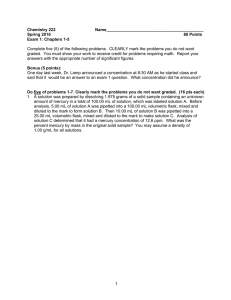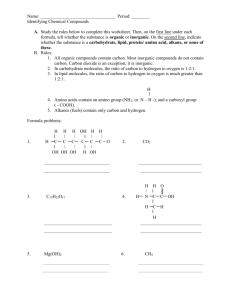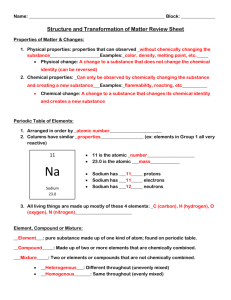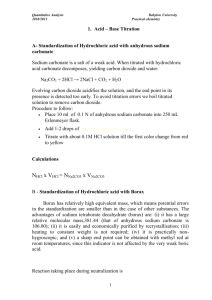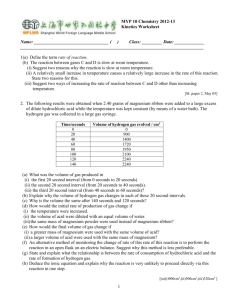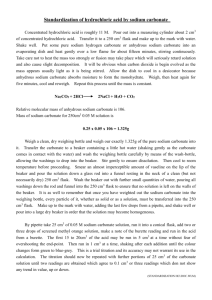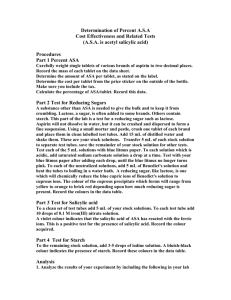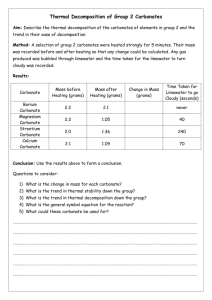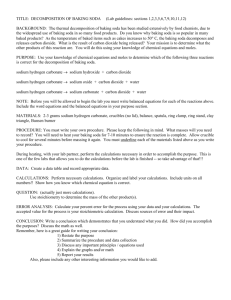HESS` LAW - THE THERMAL DECOMPOSITION OF A HYDROGEN
advertisement
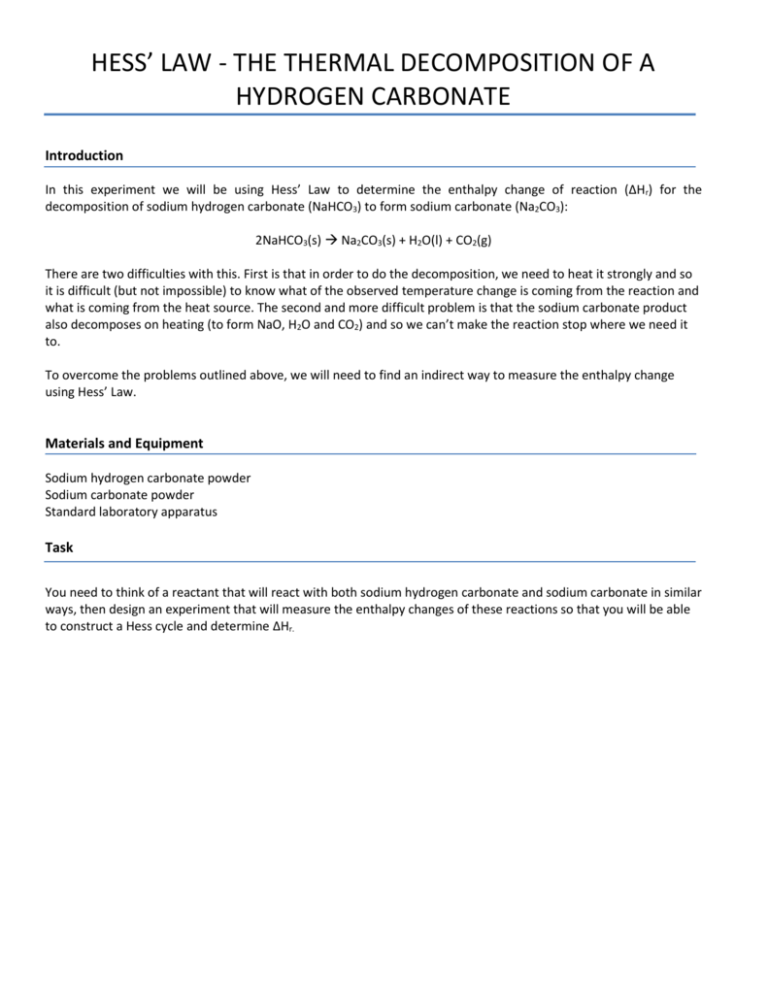
HESS’ LAW - THE THERMAL DECOMPOSITION OF A HYDROGEN CARBONATE Introduction In this experiment we will be using Hess’ Law to determine the enthalpy change of reaction (∆Hr) for the decomposition of sodium hydrogen carbonate (NaHCO3) to form sodium carbonate (Na2CO3): 2NaHCO3(s) Na2CO3(s) + H2O(l) + CO2(g) There are two difficulties with this. First is that in order to do the decomposition, we need to heat it strongly and so it is difficult (but not impossible) to know what of the observed temperature change is coming from the reaction and what is coming from the heat source. The second and more difficult problem is that the sodium carbonate product also decomposes on heating (to form NaO, H2O and CO2) and so we can’t make the reaction stop where we need it to. To overcome the problems outlined above, we will need to find an indirect way to measure the enthalpy change using Hess’ Law. Materials and Equipment Sodium hydrogen carbonate powder Sodium carbonate powder Standard laboratory apparatus Task You need to think of a reactant that will react with both sodium hydrogen carbonate and sodium carbonate in similar ways, then design an experiment that will measure the enthalpy changes of these reactions so that you will be able to construct a Hess cycle and determine ∆Hr.
